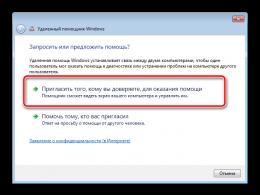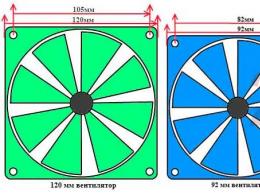Brief history of mail
Information. Probably, in our world it is difficult to name something else, the same intangible and the same dense, penetrating all directions and constantly accumulating around us. The preservation of information appeared with the first rock inscriptions, and along with the need to transmit it over long distances, signal fires were lit and drums sounded. Thus, the first post office was born. In this series of articles, we will show you how this most important segment of our lives works, how it evolves, what it was and what it will be: mail.
People learned to speak relatively long ago, but the human voice is imperfect when it comes to sending messages far away. As the need to share information not only accumulated but increased exponentially as our world evolved, new forms of postal communication were born along with it. From the first signal drums that appeared about 8,000 years ago, the ancient tribes switched to fire and smoke: they can be seen from afar, and the very fact of lighting a smoke column was a kind of signal. African tribes still use tom-toms for communication, and bonfires were used even by the Indians of the 20th century.
The first rudiments of postal communication were born in the states of antiquity along with the advent of writing: Mesopotamia, Egypt, Greece, Persia, China, the Roman Empire. The first messengers walked along the roads, later they mounted horses. News and written messages were transmitted according to the relay-race principle. In the Ancient East, the rulers needed to be supplied with constant information about what was happening in the territories subject to them with a slave-owning system. It is not surprising that this led to the development of the prototype of the postal service. It is believed that the first postal message was sent about 5,000 years ago in Mesopotamia in the form of a sealed clay letter.
The mail of antiquity was based on messengers who, orally, in writing, by sea, on horseback, by land, on foot - and most often for military purposes - carried news to all corners of the states. Such a system of news transmission received special development in the Roman Empire, and with its fall (about 520 AD), mail ceased to exist. In feudal medieval Europe of the 11th-15th centuries, post and communications as such were transferred to spiritual and secular institutions. That is, the church began to deal with mail. We will talk about this period later.

N.K. Roerich, "Messenger"
Let's think for a second. When was the last time you used the mail service? You may remember the package that you picked up from the post office or directly from the courier. They sent letters to some government agency. They opened envelopes in search of money in a distant, unhappy childhood. Sending "letters of happiness", carefully "licking", as expected, each envelope, without indicating a return address. It seems that mail is moving away from us, transforming for the most part into a delivery service and leaving for the "cloud". In fact, mail evolves. The news and article that you are reading now is an example of the evolution of news that has come a long way from the weathered hands or even the lips of a Persian messenger to the image on your display. E-mail, without which we cannot imagine our lives, was impossible without the Internet, and the Internet appeared not so long ago - it is not even 50 years old. Instead of emails, people sent only paper letters. And even in the future, when, perhaps, there will no longer be a need to deliver a package - the desired product will be printed on your 3D printer, materialized in a teleporter, or you will use exclusively virtual products - all this will only be the evolution of mail.
Information does not disappear without a trace, does not dissolve into a black hole, it only takes on a different form.
There are not many phenomena in the world, or even institutions that have developed as a result of consistent and independent development around the globe. Offhand, only the most grandiose can be named - writing and languages, many of them; an institute of science that has absorbed the research of scientists from all over the world over many millennia; the matter of diplomacy and statehood, which even in modern times do not shy away from the norms developed back in the Roman Empire; artistic culture, the heyday of which is considered Ancient Greece. Try including mail here, and you'll be surprised how well this institution fits into that fold and includes the best that people in different parts of the globe can come up with, together and separately.
The medieval church, being the one and only organ of power, took on the task of centralization, which would have been impossible without its own message system - the monastic post. Couriers from the monasteries maintained communication between individual monasteries and the head of the church in Rome, between monastic orders and their brotherhoods. At the same time, stations for changing horses were born, which later migrated to Russia. Actually, the word "post" comes from the Italian "statio posita in ...", which meant a station for changing horses. The word "post" (post) first began to be used in this sense in the XII century.
The European universities of the middle of the second millennium, in which, as it happened historically, students flocked from various countries, almost on foot, in the Lomonosov way, to get an education, used this important moment: for a fee, professional messengers of the university mail kept in touch between students and their families, sometimes delivering letters to individuals.
An interesting phenomenon was the "butcher's mail". By the nature of its activity, the European butcher shop, which made extensive travels for the sake of purchases, took on the responsibility of transporting letters and parcels. In some cities in southern Germany, this became the responsibility of the butchers, in return for which they received certain privileges. This post office worked until the end of the 17th century and in some places received state significance.
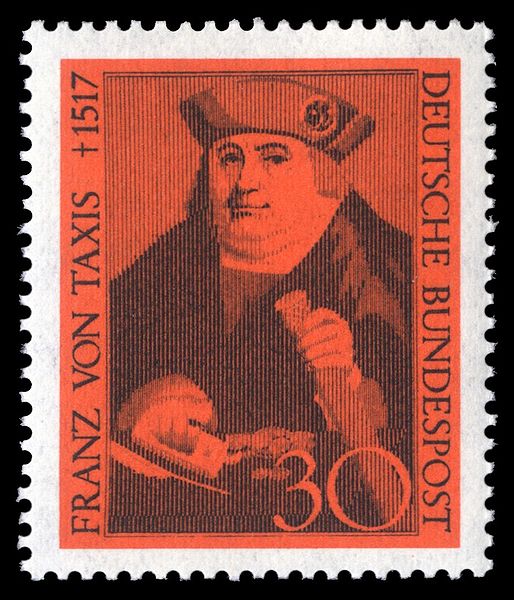
Franz von Taxis
And yet, the first organized mail in every sense of the word is the mail created by members of the Tasso clan (Tassis, Taxis). The Thurn and Taxis post existed from the second half of the 15th century until 1867 and made a huge contribution to the development of postal communications in Europe. The Taxis post was maintained at their expense, at risk, but invariably remained a private enterprise, although the emperors claimed to establish it. The Thurn und Taxis importantly took over all the effects of the evolution of mail, promptly used the postmark and postage stamp. 400 years is not a bad story for private mail.
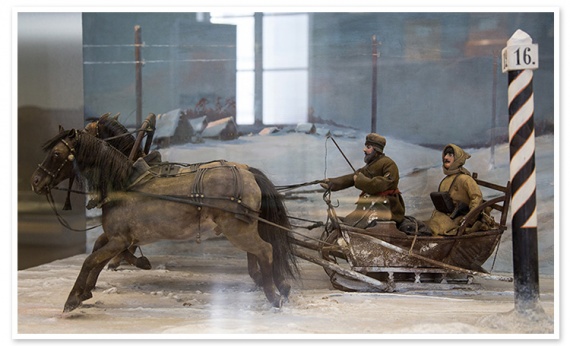
As for the post of Russia, the Russian post, which was developed on the territory of the then Russian state, historians are of the opinion that our ancestors adopted the postal service from the conquering Mongols. In that troubled period, postal stations appeared on the main roads (which we talked about above), "pits" on which "yamchi" (messengers) changed horses. As you might guess, the word "coachman" is rooted in this legend. And the word "postman" found itself in pre-revolutionary Russia since 1716 (before that, postal employees were called "postmen").
The reforms of Peter I led to the fact that the postal service in Russia appeared in all the main cities of the country. The state took over the post, the first post offices and post offices were opened, and the position of postmaster was introduced. The first mail cars (between St. Petersburg and Moscow) made their way in 1851. What happened next - you know, the first letter in your life fell into your mailbox. We will talk next time about how mail works and which elements of it have evolved and which have remained unchanged.
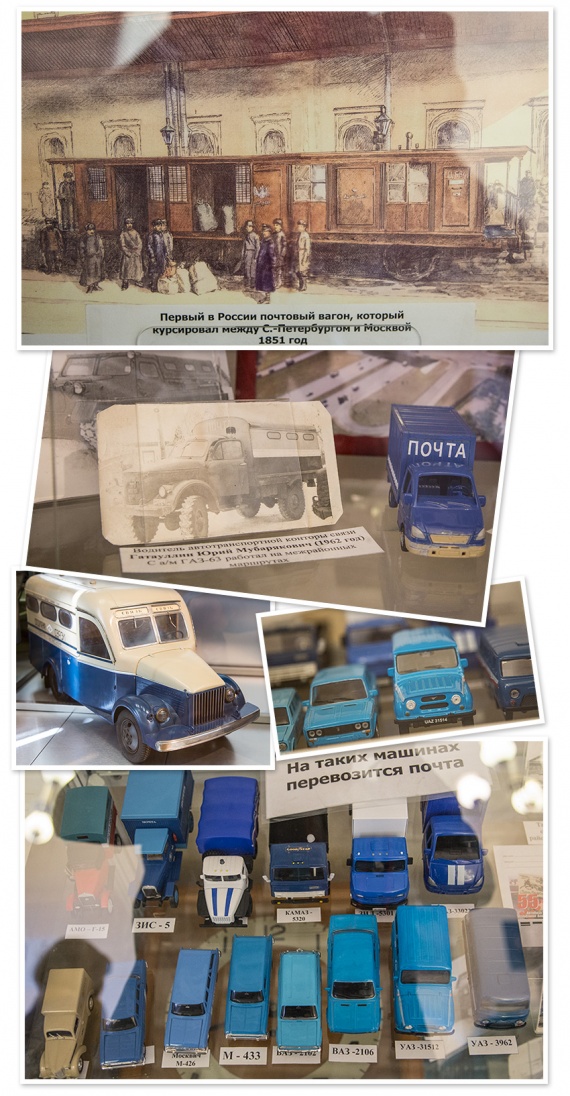
It is impossible to describe in words how far the impact of evolution and revolution in the postal service, on land and at sea has gone. Mail can certainly be called a great achievement of mankind. The peace of 1782, which followed the American Revolutionary War, was concluded only after more than two years of negotiations. Prussia and Austria fought in 1866. The campaign took seven days; and seven weeks elapsed from the declaration of war to the formal conclusion of peace. Obviously, the time difference in both cases was due only to the fact that in one case the news traveled longer, and in the other - faster.
We can look at the past with a mixed feeling - remember our frivolous ancestors who were in no hurry to go anywhere and who had time to reflect; we consider those times lethargic, lethargic, calm.
We are proud of our own era as filled with life and activity, haste and nerves, high electrical voltage. But many of us know the price of this whirlpool of life events and often say: "This pace kills." Will this pace continue for the next hundred years? Probably yes. The evolution of mail allows us to fit more actions in a minute of life, as well as the evolution of many other things, of course. Letters no longer go for weeks, parcels will soon be delivered instantly, communication has practically lost any restrictions. What will be the post office in the future? You will be the first to know about it.

Testing of the first mail drones has already begun…

